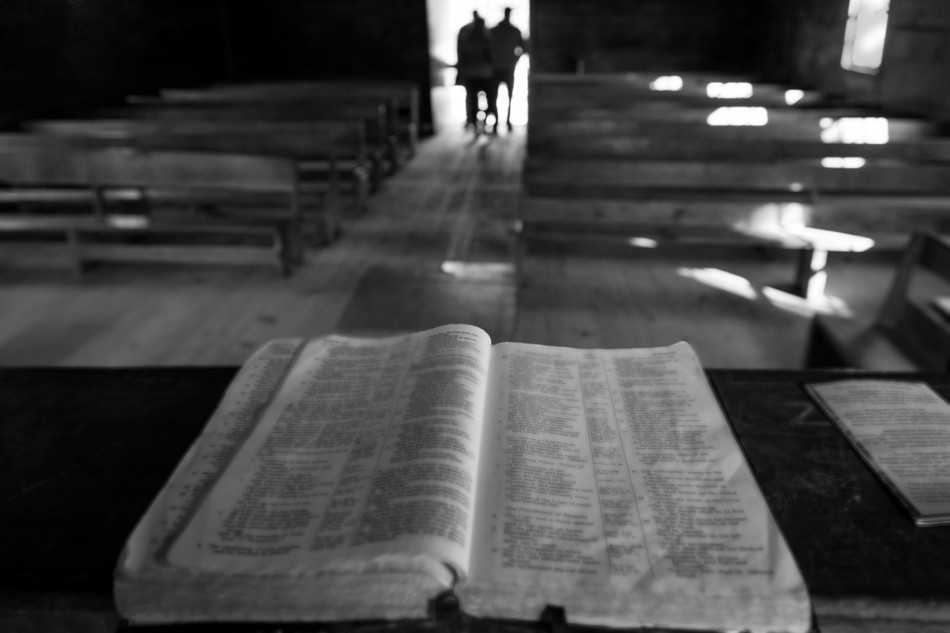Perhaps the biggest religious story of the 2010s was the so-called “Great De-Churching,” a historic shift in American beliefs and lifestyles away from organized religion and toward, well, something else. Between 2008 and 2018, the share of non-religious Americans surged from 21% to 32% of the population, marking the largest and fastest religious shift since the Civil War. This wasn’t an explosion of atheism or agnosticism. The roughly 12% who identify as such has barely budged in the last decade. Instead, this exodus from churches marked the rise of the so-called “nones,” those who, when asked their religious identity on surveys, answer simply, “none.” Notably, these “nones” are still likely to say they are “spiritual” or profess belief in a higher power—just not any deity in particular.
Given this historic surge, it’s fascinating that the “nones” now appear to have plateaued. Writing on Substack, statistician Ryan Burge, who contributed to the book The Great De-Churching, shared data showing that America has not seen a statistically significant increase in the “nones” in the last few years:
[T]he share of non-religious Americans has stopped rising in any meaningful way…I think the easiest explanation is that a lot of marginally attached people switched to “no religion” on surveys over the last decade or two. Eventually, there weren’t that many marginally attached folks anymore. All you had left were the very committed religious people who likely won’t become nones for any reason. The loose topsoil has been scooped off and hauled away, leaving nothing but hard bedrock underneath.
Perhaps this signals an opportunity to recommit and rebuild after the “Great De-Churching,” evangelizing a society that has moved from consciously rejecting Christianity to just not thinking much about it. But to do that, and to prevent future losses as we raise a new generation in a humbler American church, we need to understand when and why the “nones” left.
In another helpful article, Burge gives an overview of research he conducted for the Freedom From Religion Foundation on exactly these questions. Among his most interesting findings was that those who grew up religious and now identify as “nones” tended to leave the church fast and early. Three-quarters left their childhood faith by age 25, a majority between their fifteenth and twenty-fifth birthdays. This means those who kept their faith beyond that point had a much lower chance of de-converting later in life.
Two-thirds said their deconversion was “somewhat” or “very quick,” meaning it wasn’t likely the result of a long period of mature questioning and investigation. The reasons they cite for de-converting support that idea, the most popular being “religious hypocrisy.” Those who said “religion doesn’t make sense” came in at a distant second.
One more finding is worth highlighting: when it comes to the faith of “nones’” parents, there’s no contest. Those who had a non-religious father were much more likely to de-convert than those who had a non-religious mother. Put another way, dad’s faith, or lack thereof, has an outsized influence on the beliefs of his children.
So, a sobering but helpful picture of the landscape of unbelief in our country emerges. During the 2010s, American churches lost a huge number of mostly young people who were unlikely to have fathers committed to the faith, who say they were put off by religious hypocrisy, who came to their decisions relatively quickly, and who also didn’t convert to something else but instead regard themselves “as nothing in particular.”
The conclusion is obvious. As we raise a new generation of Christians, we should pay special attention to those crucial years between 15 and 25. This means helping them understand why their faith matters, what it teaches, and why Christianity best answers the deep, spiritual questions even those who leave church carry with them.
It also means redoubling our commitment to the family—especially fathers—as a lynchpin of religious training. Kids who lack a stable sense that theirs is a Christian household are most vulnerable to drifting away from church. Our efforts should focus on bringing those on the fringes who have no fatherly example into the heart of God’s household.
Finally, people give all kinds of reasons for losing faith, but the fact that “hypocrisy” comes up so often should lead Christians to search ourselves and see whether our lives match what we profess. Ultimately, our ability not only to retain children raised in church but to reach those who’ve left and still need good news will require us to believe that good news ourselves. Only then can we hope for anything resembling a “great re-churching.”
This Breakpoint was co-authored by Shane Morris. If you’re a fan of Breakpoint, leave a review on your favorite podcast app. For more resources to live like a Christian in this cultural moment, go to breakpoint.org.
Photo Courtesy: ©Getty Images/ Marcia Straub
Published Date: August 13, 2024
The views expressed in this commentary do not necessarily reflect those of CrosswalkHeadlines.
BreakPoint is a program of the Colson Center for Christian Worldview. BreakPoint commentaries offer incisive content people can't find anywhere else; content that cuts through the fog of relativism and the news cycle with truth and compassion. Founded by Chuck Colson (1931 – 2012) in 1991 as a daily radio broadcast, BreakPoint provides a Christian perspective on today's news and trends. Today, you can get it in written and a variety of audio formats: on the web, the radio, or your favorite podcast app on the go.




